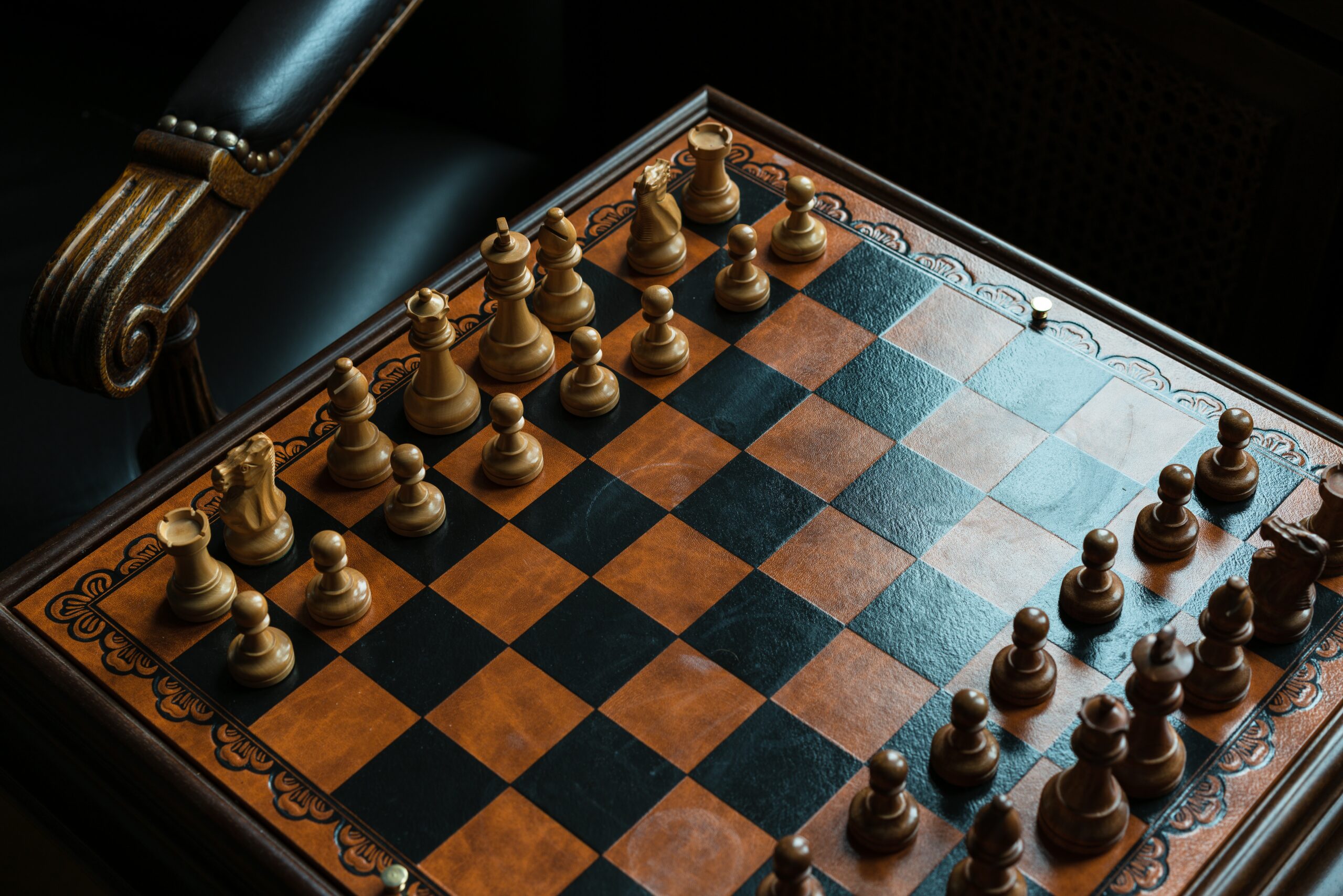Chess is a game that captivates minds and challenges strategic thinking. Whether you’re a casual player or an aspiring grandmaster, understanding your chess rating is crucial to tracking your progress and competing at your level.
In this article, we will delve into the intricacies of calculating chess ratings, explore different rating systems, and provide valuable insights to help you navigate the fascinating world of chess ratings.
How does the chess rating system work?
The chess rating system is designed to quantify a player’s skill level and provide a basis for fair competition. The most widely used rating system is the Elo rating system, named after its creator Arpad Elo.
It assigns a numerical value to each player, representing their relative strength. When two players compete, the rating difference between them determines the expected outcome, and ratings are adjusted accordingly after the game.
This ensures that players are matched against opponents of similar skill levels, making chess competitions more equitable and exciting.
Why is knowing your chess rating important?

Knowing your chess rating offers several benefits. Firstly, it provides a clear benchmark of your progress and helps you gauge your improvement over time.
Additionally, it helps you find opponents who are of similar skill levels, ensuring challenging yet fair games. Your rating can also influence your eligibility to participate in tournaments, as some competitions may have minimum rating requirements.
Lastly, understanding your rating allows you to set realistic goals and focus your efforts on specific areas of improvement.
What are the different chess rating systems available?
Several rating systems are in use today, each with its own unique characteristics. Here are some notable examples:
-
Elo Rating System: The most widely recognized and adopted rating system, the Elo system is used by various chess organizations worldwide. It calculates ratings based on the performance of players and the ratings of their opponents.
-
USCF Rating System: Implemented by the United States Chess Federation, this system determines ratings for players in the United States. It considers tournament results, opponent strength, and the rating floor.
-
FIDE Rating System: The World Chess Federation (FIDE) employs this international rating system for professional players. FIDE ratings are essential for participating in international tournaments and measuring performance at the highest level.
-
Online Chess Platforms: Popular online chess platforms offer their own rating systems. These ratings are typically based on gameplay statistics and allow players to compete and track their progress in online chess.
-
National Rating Systems: Individual countries often have their own rating systems for local tournaments. These systems can vary in methodology and rating scale, but they serve as a valuable tool for assessing players within their respective regions.
Can I calculate my chess rating without playing in tournaments?
While tournament play is the most common way to establish and update your chess rating, it’s not the only method. Some organizations and platforms offer provisional ratings for newcomers based on limited data.
Additionally, you can estimate your rating by playing against opponents with known ratings and using online rating calculators, which approximate your rating based on the outcomes of those games. However, keep in mind that these estimations may not be as accurate as official tournament ratings.
What factors influence my chess rating?
Several factors contribute to the calculation of your chess rating. The primary factors include the ratings of your opponents, the results of your games (win, loss, or draw), the expected outcome based on the Elo system, and the number of games played.
The rating changes are usually more significant when competing against opponents with a large rating gap. Consistency in your performance and playing against stronger opponents can lead to faster rating improvement.
Is the rating calculation the same for all chess variants?
Different chess variants may have their own rating systems, tailored to the specific dynamics and rules of the variant. For example, variants like Chess960 or Three-Check Chess have separate rating systems to account for the differences in gameplay.
It’s important to understand the rating system specific to the variant you’re interested in to accurately track your progress in that particular chess form.
How can I estimate my rating before playing in official tournaments?
If you haven’t participated in official tournaments, estimating your chess rating can be a helpful starting point. One way is to play against opponents with known ratings and record the results.
Using online rating calculators that take into account the strength of your opponents and the outcomes of your games, you can get a rough approximation of your rating. However, remember that these estimates are not as reliable as ratings established through tournament play.
Are online chess ratings comparable to over-the-board ratings?

Online chess ratings can provide a useful indication of your skill level, but they may not be directly comparable to over-the-board (OTB) ratings. Factors such as cheating prevention measures, time controls, and the absence of physical presence can influence online gameplay.
OTB ratings are generally considered more accurate and reflect a player’s performance in face-to-face competitive environments. Nevertheless, online ratings can still serve as a valuable tool for tracking progress and finding opponents of similar skill levels.
Is it possible to have different ratings in different time controls?
It is entirely possible to have different ratings for different time controls. Chess games can be played with various time limits, ranging from rapid and blitz games to classical time controls. Each time control requires different skills and strategies.
Consequently, many rating systems account for different time controls and maintain separate ratings for each. This allows players to compete in tournaments with specific time limits while accurately reflecting their performance under those conditions.
How does a winning or losing streak affect my chess rating?
A winning or losing streak can have a significant impact on your chess rating, especially when playing against opponents with a substantial rating gap. A series of wins against higher-rated opponents can lead to substantial rating increases, while a string of losses against lower-rated opponents can result in a decline.
The Elo system considers the rating difference and the expected outcome, so consecutive wins against stronger opponents can yield greater rating gains, and vice versa.
Can my chess rating decrease if I don’t play for a while?
Your chess rating can decrease if you don’t participate in games or tournaments for an extended period. Rating systems are designed to reflect your current performance level, and without recent games to update your rating, it may gradually decline due to inactivity.
However, once you resume playing, your rating can improve again as you regain your form and face opponents of varying strengths.
Do I need to maintain a certain rating to participate in tournaments?

Some tournaments may have minimum rating requirements for participation, especially in higher-level competitions. These requirements ensure that participants have achieved a certain skill level and can provide competitive games for all players involved.
However, many tournaments welcome players of all rating levels, offering sections or divisions with varying rating restrictions to accommodate a wide range of players.
What resources are available to help me calculate my chess rating?
Several online resources and rating calculators are available to help you estimate or calculate your chess rating. Websites like FIDE, US Chess Federation, Chess.com, and lichess.org offer rating calculators that use your game results and opponents’ ratings to provide an approximation of your rating.
However, remember that these estimates may not be as accurate as official ratings achieved through tournament play.
| Resource | Description | Features |
|---|---|---|
| FIDE Official Website | The official website of the World Chess Federation (FIDE). | Provides access to FIDE rating calculators and official rating lists. |
| US Chess Federation (USCF) | The governing body for chess in the United States. | Offers a rating lookup tool and comprehensive rating system information. |
| Chess.com | Popular online chess platform with rating calculation features. | Calculates ratings based on online gameplay and offers rating analysis tools. |
| lichess.org | A free and open-source online chess platform. | Provides rating calculations and performance tracking for online chess games. |
| Chess Rating Calculator (Chesscalculators.com) | An independent website offering rating calculation tools. | Allows users to estimate ratings based on game results and opponent ratings. |
How can I improve my chess rating over time?
Improving your chess rating over time requires a combination of dedication, practice, and continuous learning. Firstly, it is crucial to study chess tactics and strategy. Enhance your tactical awareness and strategic understanding by exploring chess books, engaging in online tutorials, and solving puzzles.
Additionally, analyzing your own games is essential. Take the time to review your moves, identify your weaknesses, and learn from your mistakes. This process helps you understand your playing style and pinpoint areas for improvement.
Furthermore, challenging yourself by playing against stronger opponents can greatly enhance your skills. It exposes you to higher levels of play and forces you to think more deeply about your moves. Actively participating in tournaments is also key to improving your rating.
Regularly competing provides invaluable experience, allows you to test your skills under pressure, and offers opportunities to achieve official ratings. Finally, consider seeking guidance from chess coaches or mentors. Working with experienced individuals who can provide personalized feedback, insights, and tailored training plans can significantly accelerate your progress.
Final Thoughts
Mastering the chess rating game is a journey that requires dedication, practice, and a deep understanding of the rating systems in place. By comprehending the factors that influence your rating, estimating your skill level, and consistently striving for improvement, you can navigate the chess rating landscape with confidence.
Remember, your chess rating is a reflection of your progress and a guidepost for future growth. So, embrace the challenges, enjoy the game, and let your rating be a testament to your chess prowess.




